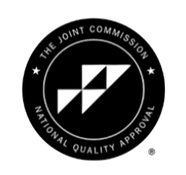As healthcare workers, you are often on the move, whether you’re traveling for conferences, shifts in different locations, or even providing care in diverse settings. While this can be exciting, it’s also important to prioritize your health and wellness while traveling. Maintaining a healthy balance can be challenging, but it’s vital for staying energized, focused, and able to care for others. Here are some essential travel tips to help healthcare professionals stay healthy while on the go:
1. Stay Hydrated
It’s easy to forget to drink water during busy days, but staying hydrated is crucial for maintaining your energy and focus. Dehydration can lead to fatigue, headaches, and difficulty concentrating—issues you can’t afford when providing care. Carry a reusable water bottle with you and aim to drink water consistently throughout the day, especially when you’re traveling. If you’re flying, remember that airplane cabins are often very dry, so make it a habit to drink water before, during, and after your flight.
2. Nutrition: Eat Well, Feel Well
When traveling, it can be tempting to grab fast food or skip meals altogether. However, fueling your body with the right nutrients is essential for staying healthy and alert. Aim to pack portable, nutritious snacks such as nuts, fruit, granola bars, or yogurt to keep your energy up. When possible, choose meals that include lean proteins, whole grains, and plenty of vegetables to keep your body properly nourished. Avoid excessive caffeine or sugary foods, which can lead to energy crashes later.
3. Prioritize Quality Sleep
Sleep is often the first thing sacrificed during travel, but it’s crucial for your physical and mental health. When you’re well-rested, your ability to perform your job, manage stress, and stay alert improves significantly. Try to stick to a regular sleep schedule, even while traveling. If you’re in a new time zone, gradually adjust your sleep pattern to minimize jet lag. If you’re staying in a hotel, make the environment as comfortable as possible—dim the lights, reduce noise, and avoid screen time before bed to ensure a restful night’s sleep.
4. Stay Active: Incorporate Exercise Into Your Routine
Even with a busy schedule, it’s important to maintain physical activity while traveling. Regular exercise can boost your mood, increase energy levels, and improve overall health. If you don’t have time for a full workout, consider taking short walks, doing stretching exercises, or utilizing hotel gyms. Activities like yoga or a quick run can do wonders for both your body and mind. Incorporate movement into your daily routine to help counteract the sedentary nature of travel and long shifts.
5. Manage Stress
Travel and work in healthcare can be stressful, but finding ways to manage stress is essential for your well-being. Practice mindfulness, deep breathing exercises, or meditation to stay grounded. If possible, take breaks during your day to step outside, take a walk, or simply breathe deeply. Travel also presents a great opportunity to disconnect from work for short periods, allowing you to recharge and refocus. Managing stress effectively will help you avoid burnout and maintain a
positive mindset.
6. Stay Up to Date on Vaccines
Healthcare workers are exposed to various infections, and when traveling, you may come into contact with new diseases or viruses. Keeping up with your vaccinations is an important step in protecting yourself and others. Ensure that your vaccinations are current, and be aware of any travel-specific vaccines or health precautions needed for your destination. Speak with your healthcare provider about recommended immunizations based on your travel plans.
7. Practice Proper Hand Hygiene
Hand hygiene is one of the most effective ways to prevent illness and the spread of infections. Always carry hand sanitizer with you when traveling, and wash your hands regularly with soap and water. This is especially important when traveling to areas where you may be exposed to new germs or when using public transportation or other shared spaces. Good hygiene practices are essential for protecting both yourself and the people you care for.
8. Optimize Work-Life Balance
It can be difficult to find balance while traveling for work, but it’s essential to avoid burnout. Make time for yourself outside of work hours. Engage in hobbies, spend time with loved ones, or simply relax. Practice setting boundaries, both with your work schedule and your personal life, to ensure you don’t overextend yourself. Prioritizing your mental and emotional well-being is just as important as providing quality care for others.
9. Listen to Your Body
Above all, listen to your body. If you’re feeling fatigued, stressed, or unwell, it’s important to acknowledge those signals and take action. Don’t push through exhaustion or discomfort—take breaks, get rest, and seek medical attention if necessary. As a healthcare worker, your well-being directly impacts the care you provide, so making your health a priority ensures that you can continue to do your best work.
Final Thoughts
Traveling as a healthcare worker doesn’t have to mean sacrificing your health. By following these tips—staying hydrated, eating nutritious meals, getting enough sleep, exercising, managing stress, and prioritizing hygiene—you can maintain your well-being while on the go. Taking care of yourself allows you to be at your best for both your patients and your loved ones. Stay healthy, stay focused, and keep caring with the knowledge that your wellness matters just as much as the people you serve.
Safe travels!



